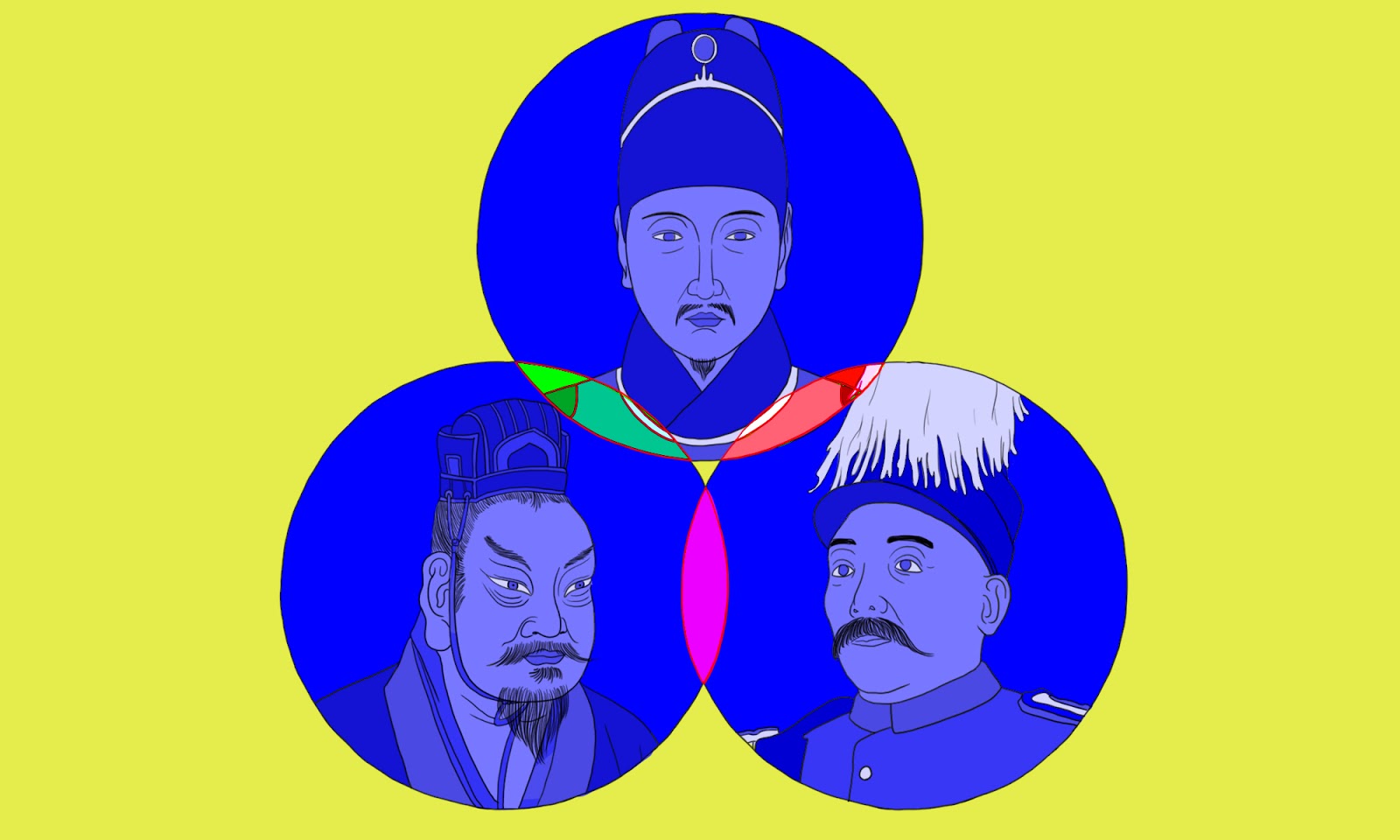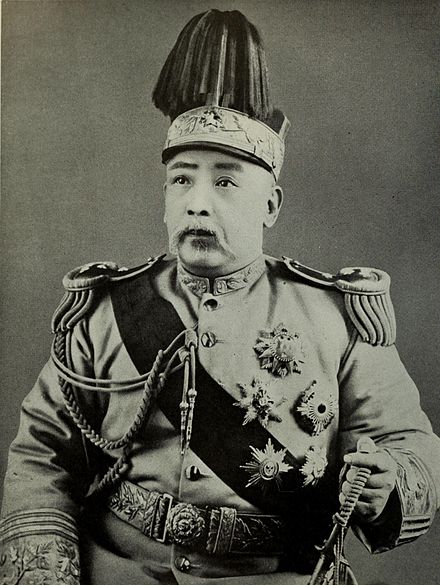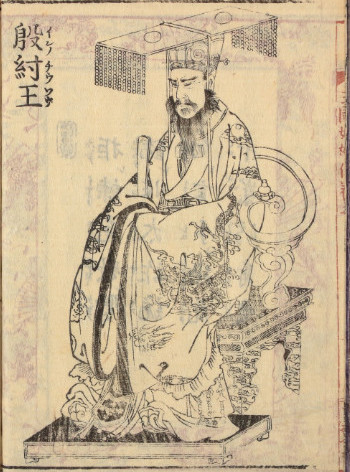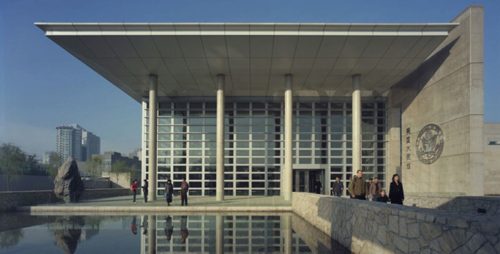China’s most Trumpian emperors
What are the ingredients of a bad emperor? This week, a special edition of Chinese Lives takes a look at the characteristics of three particularly bad rulers.

In the first presidential debate of 2020, Joe Biden memorably said Donald Trump was “the worst president ever.” Perhaps accurate for a young country like the U.S., but in China, with its 5,000-odd years of history, there have been many-a-ruler who would make Trump look competent by comparison. The absolute power vested in ancient emperors as anointed “sons of Heaven” has allowed a select few men to plunge the lives of millions into bottomless misery.
What were the ingredients of a bad emperor? Certainly ignoring their integral role as head of government — the Wanli Emperor’s lack of court attendance (not even turning up to his mother’s funeral) marked the beginning of the Ming Dynasty’s downfall, the power vacuum filled with nepotism and intrigue.
Others weren’t suited to commanding armies — the Song Dynasty’s Emperor Huizong was too busy painting to notice the Jurchen invasion that swiftly captured him and irreparably crippled his dynasty. The favoritism Emperor Xuanzong showed Ān Lùshān 安禄山 led to the latter leading a rebellion that crashed the Tang’s golden age, and the brutality of Xià Jié 夏桀 (who supposedly rode his chancellor like a horse) led to revolts that ended the Xia Dynasty. Some were just dealt a poor genetic hand: the Ming’s Tianqi Emperor was reported mentally unfit, illiterate but an excellent carpenter.
But when it comes to “the worst,” there are three who stand out.
The Chongzhen Emperor (1611 – 1644)
The last emperor of the Ming Dynasty was certainly a serious ruler — serious about reversing the empire’s decline. Some historians believe his fate was sealed before he was even born, courtesy of the useless Wanli Emperor. Future Qing emperor Kangxi believed that Chongzhen “had at least tried to govern, but there was nothing he could do about the state of the country.”
Indeed, Chongzhen’s inheritance was unenviable. The Mandate of Heaven seemed lost due to consistently bad harvests. A plague cut down 200,000 in the capital, with factionalism and corruption rife across the government. The country was rocked by rebellions within and Manchu invasions without.
But Chongzhen didn’t help his cause: he was intensely paranoid, firing officials at the smallest provocation, determined to root out the corruption that harried his predecessors. He went through 50 Grand Secretaries (the equivalent of a prime minister) in his 17 years, and in the last year of his reign in 1644, the prisons were so full an edict had to be made to speed up court trials. The competent were scythed down with the inept: Yuán Chónghuàn 袁崇煥, a seasoned general responsible for defending the northern border against the Manchus, was executed in the worst way possible, by lingchi (“slow slicing”), on false charges of treason.
Chongzhen’s aim was to smother factionalism, but instead he fanned the flames. For a start, it would have been hard to inspire loyalty when he showed none to his advisors. When he believed a peace treaty with the Manchus was necessary, he asked defense secretary Chen Xinjia to begin peace talks. This was leaked to the press, causing a public outcry. In order to protect himself, Chongzhen lied that it had been the minister’s idea, and had him executed.
Chongzhen was easily swayed by those who flattered him. Zhou Yanru rose to the position of Grand Secretary, but as a general would report fantastic victories over the Manchus which he’d completely made up. Instead of breaking the wheel of factionalism, Chongzhen merely set up new ones.
By 1644, rebels were at the gates of Beijing. Chongzhen chose to die honorably, “like the morally upright of all time.” How his last stand played out varies depending on the source consulted, but most seem to agree that he ordered the imperial family to kill themselves before hanging himself from a tree or strangling himself at Coal Hill, a park opposite the Forbidden City.
At a time of instability, regularly reshuffling the government with a stream of executions will hardly steady the ship. In the words of historian Frederick Mote, Chongzhen created an administration “that simply could no longer manage its resources, utilize its strengths, and maintain its focus.”
Just because an emperor wishes to govern doesn’t mean he can.
I WON THE ELECTION!
— Donald J. Trump (@realDonaldTrump) November 16, 2020
Yuan Shikai (1859 – 1916)
A classic overweight strongman, an autocratic general blind to everything except his quest for power — leading his country over a cliff in the process. His campaign to modernize the Qing Dynasty during its death throes — or being made president of the new Republic of China in 1912 — weren’t enough for him; not only did he dismantle and undermine the Republic’s branches of government, he also made himself emperor, with disastrous consequences.
Despite failing the imperial exams twice, Yuán Shìkǎi 袁世凱 was carried to power by the muscle of his Beiyang army. Equipped with guns even more advanced than those of the western legations in Beijing, this was the best military force in the whole of China. All the army’s officers were loyal to Yuan, their founder and guiding light. Both the Qing and Sun Yat-sen (孫中山 Sūn Zhōngshān) knew it, allowing Yuan to be the king-maker during the chaos of the Qing’s downfall.
Yuan sided with the highest bidder. Although a staunch modernizer, he helped the Empress Dowager Cixi quash the progressive Hundred Days Reform of 1898. But he also did everything he could to quash the Boxer Rebellion of 1900, siding with foreign powers against the Cixi-backed rebels. When Sun Yat-sen was forming the Republic in 1912, it was Yuan who got to depose the Qing in return for the office of President of the Republic (despite Sun Yat-sen having already been elected to that role). Yuan then accepted the humiliating demands of Japan to cede Qingdao in return for support for his personal quest for power.
From its formation, Yuan sought to undermine the Republic. It was a government based on the U.S. model, but he sought greater powers for the presidential office — during the Qing he’d argued for the importance of a strong monarchy, along the lines of Japan or imperial Germany. One KMT official elected in 1913 promising to strengthen legislative powers against the executive was assassinated in Shanghai. Anyone connected to the incident was also killed or vanished mysteriously before the police could question them. So Yuan was never proven guilty.
Despite the KMT winning the majority of seats in the 1913 election, Yuan publically labeled them public enemies, dissolving the party and driving members out of Parliament.
He left a legacy of chaos. He installed a system of military governors across the provinces, each given control of their own army. A decentralized military system led by a fragile central government had been the cause of at least one dynasty’s downfall. Once he declared himself the Hongxian Emperor in 1915, these governors rebelled or declared independence. Thanks to Yuan they now had the troops to back their words up, paving the way for the Warlord Era, the Republic’s fragmentation, and a blood-filled cycle of civil wars.
It’s possible he may have been misled, his eldest son creating a media echo chamber for him. The son — who also harbored imperial ambitions — knew his father set great store by a newspaper called the Suncheon Times, so every day he organized for a fake newspaper to be delivered to Yuan, trumpeting fake popular demands for a return of the monarchy.
The best thing for America’s future is for @realDonaldTrump to go to total war over this election to expose all of the fraud, cheating, dead/no longer in state voters, that has been going on for far too long.
It’s time to clean up this mess & stop looking like a banana republic!
— Donald Trump Jr. (@DonaldJTrumpJr) November 5, 2020
Once he accepted the “spontaneous” vote of his hollowed-out parliament (with his argument that representative government had clearly failed — omitting who’d been the cause), Yuan declared himself emperor. But even his Beiyang power base deserted him at this news, and after just 83 days of fast living he was forced to renounce the throne, dying three months later of uremia.
Claiming the throne was so damning that not even revisionists have been able to defend it — an innovative modernizer proposing to solve China’s problems with a relapse of tradition. His villainy was one of the few things Chiang Kai-shek (蔣介石 Jiǎng Jièshí) and Chairman Máo Zédōng 毛泽东 could agree on. The latter’s secretary would later write a pamphlet titled Yuan Shikai: The Great Bandit who Stole the Country (窃国大盗袁世凯 qièguó dàdào Yuán Shì Kǎi), describing him as a “concentrated dark shadow.”
Zhou of Shang (1105 – 1046 BC)
From the stories that surround Zhou of Shang (also known as Zhòu Xīn 紂辛 or Dì Xīn 帝辛), he sounds like a Chinese Nero or Marquis de Sade, his rule a toxic mix of debauchery, sadism, and tyranny. A lot of the stories about him were made up in the thousands of years since the 1040s BC, where he had reigned as the final emperor of the Shang Dynasty.
Although starting off as a capable ruler, he abandoned his duties for pleasure. Writing over a thousand years later, Han historian Sima Qian says Zhou’s “natural abilities [were] extraordinary, and his physical strength equal to that of a wild beast.” No doubt he must have cut a notable figure at the naked orgies he threw for his concubines and ministers in his splendid “Stag Tower” at what is now Yanshi, Henan province. According to legend, when one concubine objected to a naked game of cat and mouse in the forests surrounding the palace, not only was she executed, but Zhou had her father ground into a paste and fed to his courtiers.
He filled a special pool with wine, an island at the center planted with trees from which hung chunks of tasty meat snacks. He and his concubines would paddle across the lake in canoes, drinking its waters and gorging from the meat trees.
According to legend, he’d been cursed for wanting to sleep with the Goddess Nüwa. The incensed goddess vowed to bring down his dynasty, sending three evil spirits to hustle him into an early grave. They took the forms of three beautiful women — the most beautiful being the masochistic Daji.
She and the emperor discovered they were sexually aroused by the screams of tortured men, fornicating to their guttural cries. The most famous of their inflictions was the ‘Paolao’, a bronze cannon stood upright and heated with charcoal until white-hot. Prisoners would then be forced to hug the cannon.
“He boasted that he was above his ministers on the ground of ability,” said Sima Qian, “and that he surpassed the people of the empire on account of his reputation.” That meant he didn’t take criticism well. Qian tells that when his uncle Bi Gan criticized his rule, Zhou replied, “I have heard the heart of a holy man has seven apertures.” Bi Gan’s heart was cut out to test the adage.
His regime came to an end in 1046 BC when he was overthrown by King Wu of Zhou. Upon hearing of his defeat, the last Shang emperor retreated to his palace and burned it to the ground, with himself inside it.
It’s likely that the Zhou fabricated most of the above, as became the norm when a new dynasty had to justify seizing power. Zhou sources merely say he was a heavy drinker, decadent, and lazy. But by the Ming, the legend had locked into place, the novel Investiture of the Gods (封神演義 fēng shén yǎnyì), cementing his name in popular culture. Even today, 酒池肉林 (jiǔ chí ròu lín), “pool of wine, forest of meat,” is a byword for decadence, and 助纣为虐 (zhù zhòu wéi nüè, lit. “help Zhou abuse”), still means to side with the devil.
So, America — it could’ve been worse.
Chinese Lives is a weekly series.









